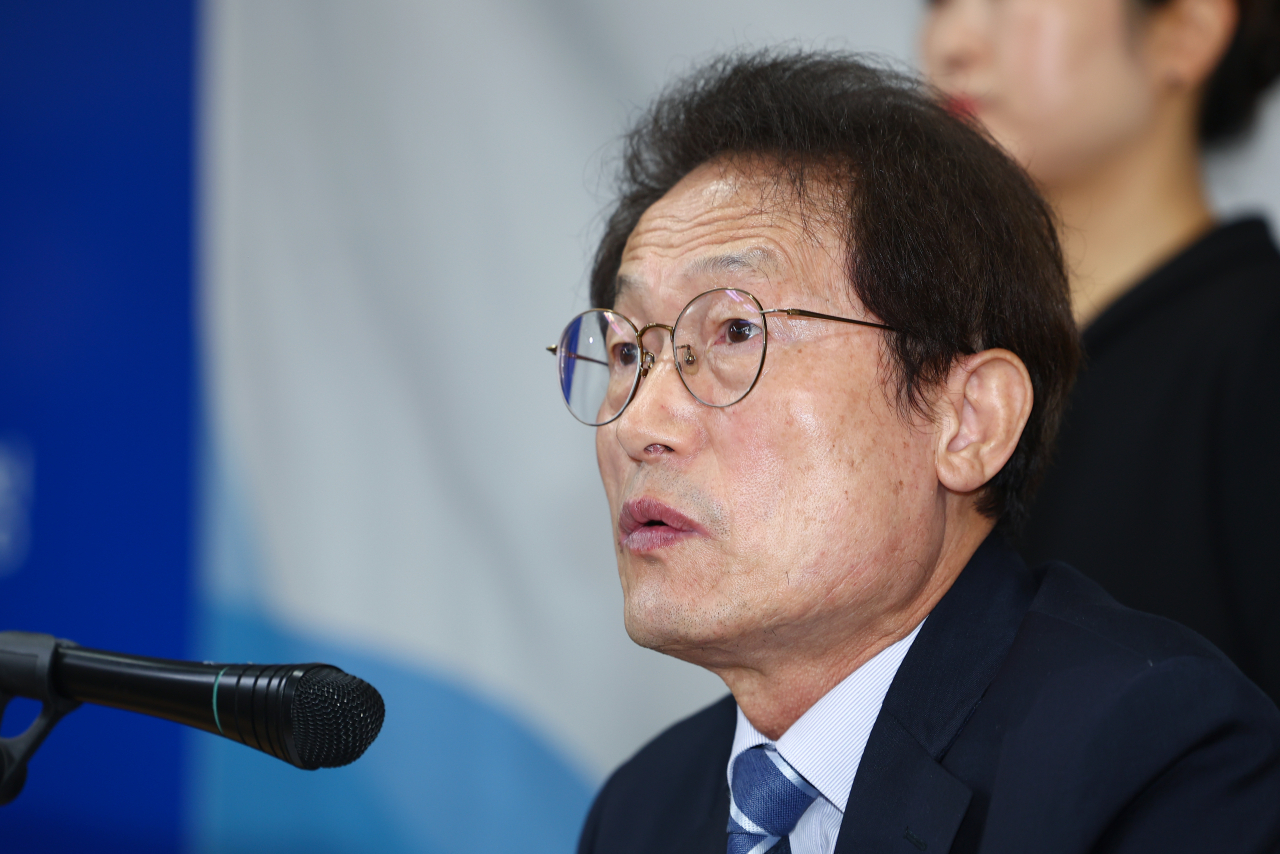 |
Seoul Education Superintendent Cho Hee-yeon speaks during a press conference held at the Seoul Metropolitan Education Office of Education in central Seoul on Thursday to mark the first anniversary of his office. (Yonhap) |
Seoul Education Superintendent Cho Hee-yeon said Thursday he would deploy native English-speaking teachers at all public schools in Seoul, along with additional native teachers for schools with large student populations, in line with the government’s efforts to enhance public education quality.
Addressing the alarmingly high spending on private education, especially in English, despite the declining student population, Cho said he plans to deploy English-speaking teachers at all elementary schools in Seoul to prevent students from resorting to private academies.
“English is the language of international communication and has become more crucial than ever, so parents are spending at least a million won every month, and in some cases, they turn to foreign or international schools to offer a better educational environment for their children. But this only leaves those unable to afford such behind,” Cho said.
Currently, only 395 elementary schools in Seoul have native-speaking teachers, while 169 elementary schools have not yet benefited from the scheme, according to Cho. He said he would consider adding more native-speaking teachers to schools that are overcrowded with students.
Cho said bringing more English teachers to public schools would quell the burden on parents in out-of-school academic spending. The measures for bringing in more native teachers will be announced in the latter half of the year.
“In the long run, bringing educational content and courses offered in the private education market to public schools will reduce out-of-school spending and bridge the gap between educational opportunities,” Cho said.
The education office will also develop more AI-based English courses and content in line with the paradigm shift in education through technology, as digital textbooks for Korean schools will go into use in 2025.
Apart from his plans to beef up public education quality, Seoul’s education chief said he would work closely with the Education Ministry to crack down on private education irregularities when it comes to the national college scholastic ability test, or Suneung.
“I’m on the same page with the government that Suneung should only cover material in class, not those taught in hagwon (private academies). This will pave the way for fair Suneung and college admissions and gradually reduce reliance on hagwon,” Cho said.
He said the education office would strictly respond to any irregularities in private education institutions, and those found to have breached the rules will be given a penalty notice and told to pay fines.
Cho also said he has gotten a foothold in implementing the International Baccalaureate program at elementary and middle schools, stressing that schools need to shift from traditional textbook-based rote learning to classrooms that can nurture creative thinking.
“IB will help form new learning methods. Thirty-one schools in Seoul will explore the IB program, but I hope more schools will introduce the program,” Cho added.







